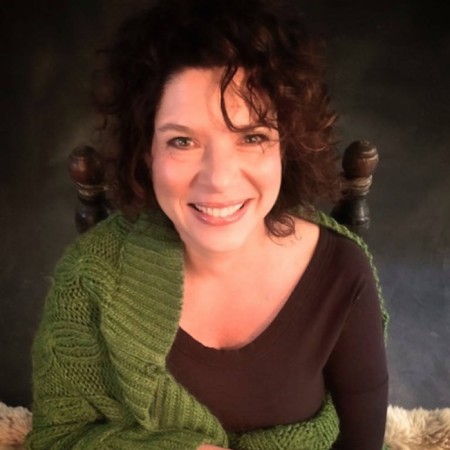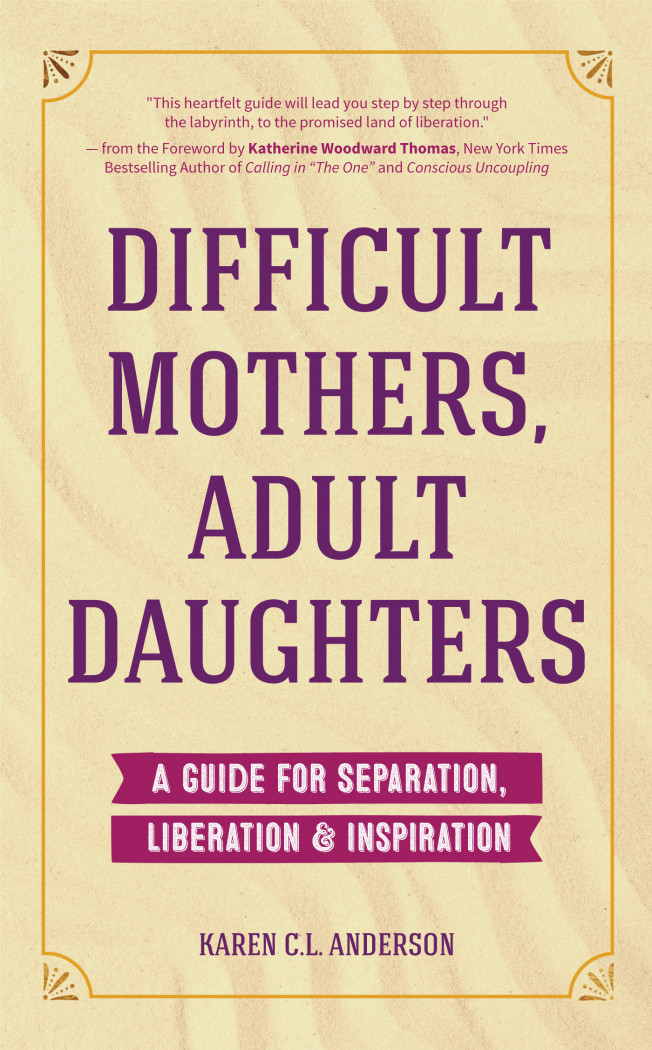Dear Daughter,
I once read an article by a woman who wrote, “I had an abortion because when I became pregnant, I was still too much under the thumb of a controlling, abusive, mentally ill mother who would have insisted I keep it. I had an abortion because adoption wouldn’t have been an option, and I wasn’t strong enough to be a good mother.”
In my case, my mother was ready to insist I have an abortion, just in case I had some misguided desire to keep you. But no, not only was I not ready, I was terrified to become a mother (and that terror was buried so deep I was unaware of it).
So one day in early May of 1984, I terminated my pregnancy — I let you go — in a nondescript house on a commercial strip on Mill Plain Road in Danbury, Connecticut, that had been converted into an abortion clinic.
The circumstances of your conception seem almost comical now and a little pathetic:
I was a senior at Marist College, very much in rebellion mode, and had a crush on Michael, a freshman who said he was bi. He was an exotic man-child who wore eyeliner — tall, slender, with hair dyed strawberry blonde. We’d go out to clubs, drink, do drugs, and dance to Wham!, Culture Club, and Duran Duran.
That year I lived in a dumpy two-story house across the street from campus. Michael was there most of the time and often slept with me, without sleeping with me. Other than some teenage fooling around, I was basically a 21-year-old virgin and ready to get it over with.
One evening I went to bed early. With my face to the wall, my roommate’s boyfriend was able to climb into bed with me and pretend to be Michael. He spooned me from behind, sliding his hand along my curves and told me how good I felt. It was Michael’s voice, but they weren’t his hands.
Then, all of a sudden, laughter. I turned over to see this near stranger in bed with me and Michael and some others standing in the doorway laughing.
Later that night, Michael obliged me. I honestly don’t remember much about the actual sex, but the next morning when I woke up, I knew I was pregnant.
I was also madly and deeply in love with Michael, a pattern that would continue another 10 or so years: having sex with — and then falling madly and deeply in love with — men who were unlikely to commit to me. Men I would lower myself to be with. Men who would lie to me and yet, whom I’d choose to believe. Because I just didn’t know how to be with a man who wanted to be with me.
It was only a week or so later that my mother showed up. Michael and I had (temporarily) “broken up” (I am not sure we were ever truly dating, thus my use of quotation marks). When she walked in the door, I burst into tears and said, “Michael broke up with me, and I think I’m pregnant.” There was no question in her mind, or mine, that I would not be keeping you. I wasn’t even a month along.
My mother made the arrangements and I went home to Connecticut for the abortion. What I remember most about that day, besides the nondescriptness of the abortion clinic, some mild cramping, and getting my first prescription for birth control pills, is going to the movies afterward.
Although I didn’t (and still don’t) feel regret, shame, or guilt for having made that decision (or for choosing not have children at all), it’s important that I share this with you now. Even though I’ve told bits and pieces of this story over the years, there’s a part I’ve not known how to tell because it wasn’t complete. And when I say complete, I don’t mean the end, but rather that I am no longer hurting myself with it.
***
10 years later (after a brief marriage to a guy from Brazil who needed a green card, and a few other relationships with noncommittal men), I met a man who fell in love with me. A man with three children. A man who’d had a vasectomy after his youngest was born.
Which reminds me of a funny story. He and I dated for about a year before I met his kids. The day I met his youngest, a daughter, she blurted out, “My dad got his tubes tied, you know.” She was nearly 10 years old at the time.
I laughed and replied that I did, indeed, know about the tube-tying, and that it was okay because I didn’t want to have children of my own.
It was such a relief to know that I didn’t have to become a mother.
Even though my biological clock didn’t even seem to have a ticker, my whole life I’d assumed that someday I’d get married and have kids, if that’s what the man wanted, because I was afraid to have a preference.
After we married, I gladly and proudly welcomed any opportunity to say I was childless by choice, and bragged about how I never got much flak from others because I was so certain.
***
So it surprised me how, over the years, Mother’s Day became fraught with unwanted emotion: confusion, grief, sadness, jealousy, bitterness, guilt, anxiety… and often shame.
Wanting acknowledgments that didn’t come. Not wanting to acknowledge others.
Getting acknowledgments that felt fake and phony (not because the person giving them was being fake and phony, but rather because I couldn’t truly receive them). Jealousy, when I saw my sister owning her stepmotherhood in a way I just couldn’t seem to do.
Getting acknowledgments that took my breath away and made me cry because deep down inside I was craving them. Pretending it was all okay. Rolling my eyes when people would say, “You’re a mother too,” and me replying something like, “I’m not a mother,” or “I never wanted to be a mother,” or “‘Step’ is the kind of mother I was meant to be.”
It seemed that others wanted me to have something that I did not want.
Then this not a mother identity started to crack open.
Being present with my stepdaughter when she gave birth to her first child.
The moment Elizabeth (my stepkids’ mother) and I had together just prior to her death from lung cancer.
Becoming my grandmother’s legal guardian, being truly present with her, a woman I had barely tolerated most of my life, and walking alongside her on her journey to death at age 98.
***
Some of the most epic emotional meltdowns I’ve ever had seem to have their genesis in what I interpreted as being disrespected by my step-kids. I am pretty sure they know nothing about these meltdowns as I had the wherewithal to understand — on some level — that they (the meltdowns) were my creation.
About 10 months ago, after one such meltdown brought me to my knees with hot, prickly-faced shame, rage, and deep sadness, a mentor reached out to me. She said, “I can tell you’ve been in a lot of pain lately.”
I nodded, barely able to speak, and tears already streaming down my face.
She continued, “I haven’t known you all that long, but something I know is that you strongly identify as ‘not a mother’. I’m wondering what it would be like for you to let that go.”
I sobbed. I could feel the truth in what she said. And I was confused. “But I don’t want to be a mother. I never have. Besides, it’s kinda late for that,” I joked through my tears.
She wasn’t suggesting I take on a new role or that I try to be or act in a way that’s not congruent with who I am. She wasn’t suggesting that I’d somehow missed out because I hadn’t had a child. She was simply asking me to consider what it would be like to let go of the identity I’d created, the story I was telling myself.
It intrigued me, but I was also terrified. I didn’t fully trust that part of myself because I didn’t fully trust the maternal role models I had. And I couldn’t shake the image of the martyr mother who gives and gives and gives (i.e., has no boundaries). I’ve known some of them too, and imagined that I’d have to start doing things I didn’t want to do.
My mind could only see what it would lose — it couldn’t see what it would gain.
Even so, after our conversation, I felt immense relief. Really, all it would mean is that I could become more of who I already am. I could trust that.
Since then I’ve been reclaiming and practicing maternal love every day. Not my mother’s love, not anyone else’s love… I am talking about the pure, unconditional maternal energy that exists within me — a love that I create.
I had pushed it away and pushed it away and pushed it away, much to my own detriment and to the detriment of those I love.
It is this energy that moves me to act, to persist, to resist, to be fierce when needed, to be soft at other times, to be the wise Alpha Mare who, as Elizabeth Gilbert put it, “is relaxed and at peace, who walks in the world with her guard down, her eyes filled with curiosity, and her soul filled with simple wonder.”
What have I lost? A relentless craving for outside acknowledgment, validation, and approval, especially from my step-kids and my mother.
What have I gained (that I could never have imagined)? The ability to self-soothe. Profound self-trust. Having my own back. Being truly present with others. Impeccable boundaries. Equanimity. The ability to truly receive acknowledgment, validation, and approval, from whomever it comes. To Mother.
Ironically, this ability and desire to Mother comes in the midst losing my biological ability to become a mother.
And so, dear wisp of energy that is my daughter, I want you to know that I think of you often. I imagine how old you’d be, what you’d be doing in your life, whether or not we would have escaped the dysfunctional patterns that at one time seemed etched in stone. I also want you to know this: I am your Mother, and I honor you by no longer punishing myself. I choose to be an example of what is possible.
***
Karen C.L. Anderson is the founder of Mare: A Re-Mothering Community for women, and author of the upcoming book Difficult Mothers, Adult Daughters: A Guide For Separation, Liberation & Inspiration. Karen believes that the truth never creates suffering, and that all stories can be told through the lens of truth. She empowers women to use their voices to tell their truths and reduce their own suffering. In another life, Karen tried to fit her right-brained self into a left-brained career as a trade magazine journalist in the field of plastics (and if she had a dime for every time someone mentioned that line from The Graduate…). She is married to a left-brained engineer and they live in Southeastern Connecticut.


